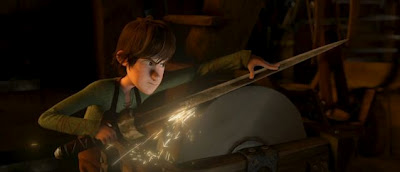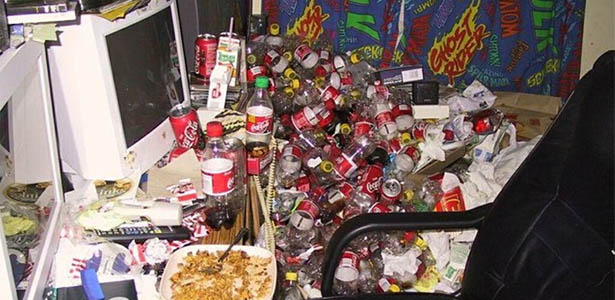Through my own pursuit to become the best game dev I can be, I have formulated a list of behaviours and mindsets which when applied correctly can help you on the path to becoming a better game developer. They are in no particular order of priority and there will be some natural overlap between points. Hopefully you will find them as useful as I do.
1) Play games! Lots of games
More specifically, play old retro games. They are the foundations for most modern indie games and hide countless golden mechanics waiting to be discovered. Playing good games is the BEST way to learn how to make good games, much like a Chef must taste different cuisines. You don’t need to finish them from start to end, rather snack on them to get a taste – which might lead to that spark of inspiration.
It’s also beneficial to play games from other indies and get an idea of how many games of a certain style are in the wild. How saturated a genre is will have a direct effect on your game’s ability to stand out.
2) Don’t be a shady cloner
Cloners are the bottom feeders of our industry. It’s one thing to be part of a ‘Flappy Jam‘ or conducting a cloning ‘experiment’ to better yourself. But to take an idea from another developer, an idea which they have injected part of their identity into, then flip it to make a buck… Well, that makes you a low life.
There is a difference however in making a game which uses a similar mechanic, or art style as another. This is almost unavoidable, as pretty much every game is loosely based on another from the retro era (hello grey area, we meet again).
The cloning I’m talking about is intentionally making and releasing a game which morally, and in some cases legally, infringes on another developers IP so you can benefit indirectly from their success. Example, releasing a voxel styled 3D isometric game called Crossy Chicken. Unfortunately some of the biggest companies are guilty of this practice as we saw with the Triple Town and Tiny Tower scandals.
It is a very grey area with no clear industry guidelines. One rule of thumb is If it feels wrong, it most likely is wrong.
3) Never stop sharpening your blade

Like a samurai after countless bloody battles, the sword edge gets dull. Technologies change, new game-making techniques emerge. Don’t cling to the past like a sour-puss or rage when your favourite platform/tool loses relevance. A good developer knows when to move his eggs and how to distribute them among the many baskets.
Consider making a few mini-games using different technologies such as Phaser, Unity, Cocos2D, Adobe AIR. The more variety you try the better equipped you will be when Mr.Change comes knocking on your door to crash your party. You will also be a more flexible and valuable developer should you need some freelance work.
4) Work on increasing your fame and developer profile
Get on Twitter and connect with other developers who are sharing interesting posts. Share your works in progress (wip’s) as well as giving constructive feedback to others. It may take time but through consistency you will build up a following, and with it, credibility and influence. Great things to have when you’re about to release a new game right? Check out this post I wrote, Tips for building your fame as an indie developer, to get a deeper perspective.
5) Be a mentor, teach what you have learnt
This point overlaps with the previous in many ways but deserves to stand alone. Helping others is one of the best ways to help strengthen your own skills while strengthening your community standing. Write a blog, answer forum help questions or go to game meetups and help newcomers refine their games. The day I started blogging and writing articles like this was almost as satisfying as building my own game and satisfaction is fuel for an indie dev.
6) Work smarter not harder
Hard work, blood sweat and CocaCola will always be the cornerstone of our profession. But through clever decisions and processes we can work more efficiently and get more out of our time. It’s a tough life as an indie, most of us work on games without funding for months or even years, and when we launch our game, making money back can be a dice roll. So it’s important to work more efficiently, lowering time-cost and liability of our creative pursuit.
So what does it mean to be efficient? Well, let’s say your making a game with needs 100 levels, all which use the same mechanic and assets. Creating/using a level editor could optimise your workflow. There will be some setup time, but by the end you will be cruising though your project like a boss.
7) Brainstorm off base
Good ideas are the starting point for all games we make, and like writers, it’s easy to get creatively blocked.
Formulating your ideas away from the computer is a good way to clear your head and find fresh sources of inspiration. Take a walk to the park with a pencil and pad to write down notes and draw rough sketches. Many game developers as well as myself, do this to both refresh our minds as well as cultivating inspiration from our surroundings. Desktop wallpapers of exotic locations only go so far.
8) Make good games – by defining a strong idea recognition process
Making good games is hard work. Fun, but hard. It’s important to define your own process of filtering out and avoiding bad ideas. Then actioning the good ones and through execution, making them great.
As indies we have a growing backlog of great ideas. Many that sound good don’t always translate well to digital format. It’s important to come to these realizations early rather than months into a project. Through the process of conceptualizing, prototyping and feedback, you can almost guarantee you are working on a good game. This doesn’t however mean your game will be successful, as success in our current market is very much dependent on clever marketing.
9) Don’t be a monetisation trickster
Cloners, ad tricksters, they are all part of the same rotten egg nest. I could have just made a point called ‘don’t be a douche bag’, but lets be specific.
Trying to scam money through accidental ad clicks/IAP is bad mojo. Sure you might make a few bucks from your clicks, but it will do nothing for your developer profile.
Remember this post is about being an amazing developer not how to be an average developer and make a few bucks. We all want money, I get it, but there is a right way and a wrong way to do it. Doing it the right way will in the long run bring you 10x the riches and fame as being a trickster. You see people will only allow you to trick them once or twice before they catch on, stop playing your game and give you a bad review. There is no user growth.
2015 is the year of clean monetisation, pioneered in part by games like Crossy Road who showed that you don’t need to be pushy to make money from ads. And they have about $10m in the bank to show for it ($3m+ from video ads alone), you do the math.
10) Work on your promotion skills
Promotion/ marketing are daunting concepts for your average developer. Many developers think that promotion is something that takes place exclusively after the launch of a game. Not true.
Posting screenshots of your works in progress on social media, or showing off an early prototype at a game conference are both excellent pre-launch promotion techniques.
As Indie’s we don’t usually have fat wads of cash lying around to pay for advertising costs, so we need to be clever. Part of being a good promoter is to create a following regardless of whether you are currently working on a game. Creating a blog, gaining forum influence or building your Twitter followers are all viable promotion techniques and will be very useful when the time comes to launch your game. Consider point 5, work on increasing your fame and developer profile.
I hope you have found these points useful. I use them personally to stay focused on my indie goals.
One extra point though not essential, may help you find focus and channel your creativity.
11) Create a comfortable indie dev environment:
Having a comfortable environment represents different things to every developer based on their circumstances and mindset, but essentially it means, create yourself a dev environment that improves your workflow. Or to simplify it further, consider clearing out the tower of empty pizza boxes every few weeks. Every developer has their own style and for some it might mean to be surrounded by trash.
A creatively optimized, yet minimalist environment is less distracting and allows you to focus on your game (posters, game plushies and figurines are all good).
Some say we are a product of your environment. If true, how does this influence our creative process and outcomes?
If you find this article useful consider sharing it or following me on Twitter.
Can you think of any other good ones for the list? Drop em in the comments below.












1 Comment
Wow, this seems so true, and so much of what I’m trying to learn right now! Great article you guys!